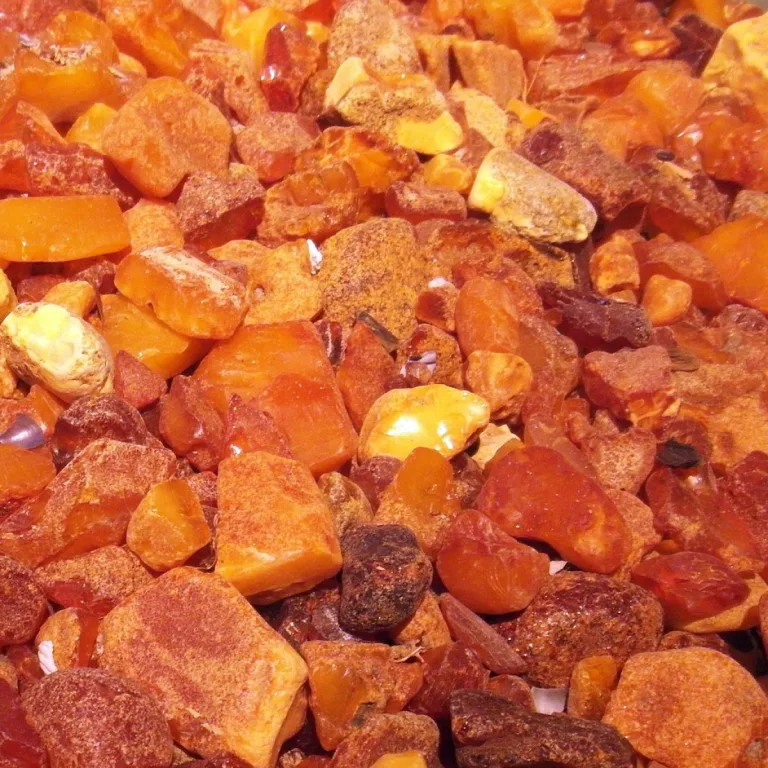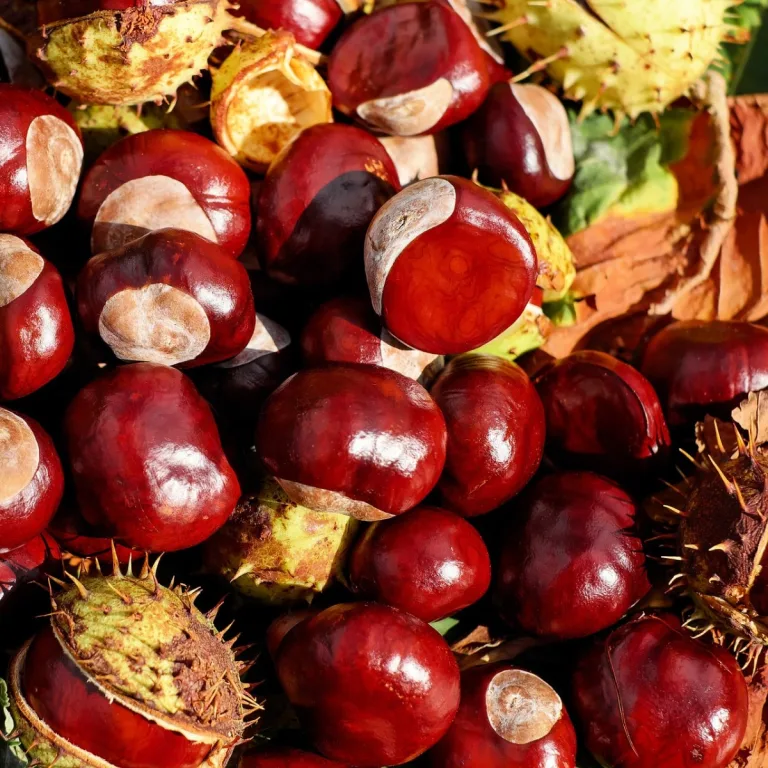Red Reishi mushroom (Ganoderma lucidum), also known as Lingzi, the “Mushroom of Immortality”, “10,000 Years Sponge”, “Queen of Plants”, “Immortal Sponge”, and “Life Elixir” has been known in China, Japan, and other Asian countries for its miraculous health-enhancing and longevity promoting effects for a thousands of years.
Due to its variety of potential health benefits and rich composition Reishi has been used in Eastern medicine to boost the immune system, fight cancer, enhance many body functions, calm the mind, relieve cough and asthma, reduce insomnia, lessen fatigue, improve the work of vital organs, as well as to strengthen and heal overall health.
Although Reishi mushrooms themselves can be consumed raw, it is also custom to use supplements, extracts or powdered forms of the mushroom that contain these particular healing molecules.
In nature there are 6 types of Reishi, but Red Reishi Mushroom (Ganoderma lucidum), is the most studied one and possesses the strongest medicinal effects.
It is a dark, large mushroom with a woody texture and a glossy surface that grows on decaying hardwood trees in different hot and humid locations in Asia. Because this extremely beautiful mushroom is relatively rare in the wild, Japanese scientists discovered a method for cultivating Rer Reishi mushroom. Thereby, today, the Reishi mushroom is widely available and the main growing and production locations are Japan, China, the USA and several other Asian countries.
In this article, we will discuss about all the nutrients contained in this mushroom, the health risks, and the 13 scientifically studied health benefits of the Reishi mushroom. Some of these health benefits are backed by stronger scientific evidence, while support for the others is less conclusive (7, 12, 25).
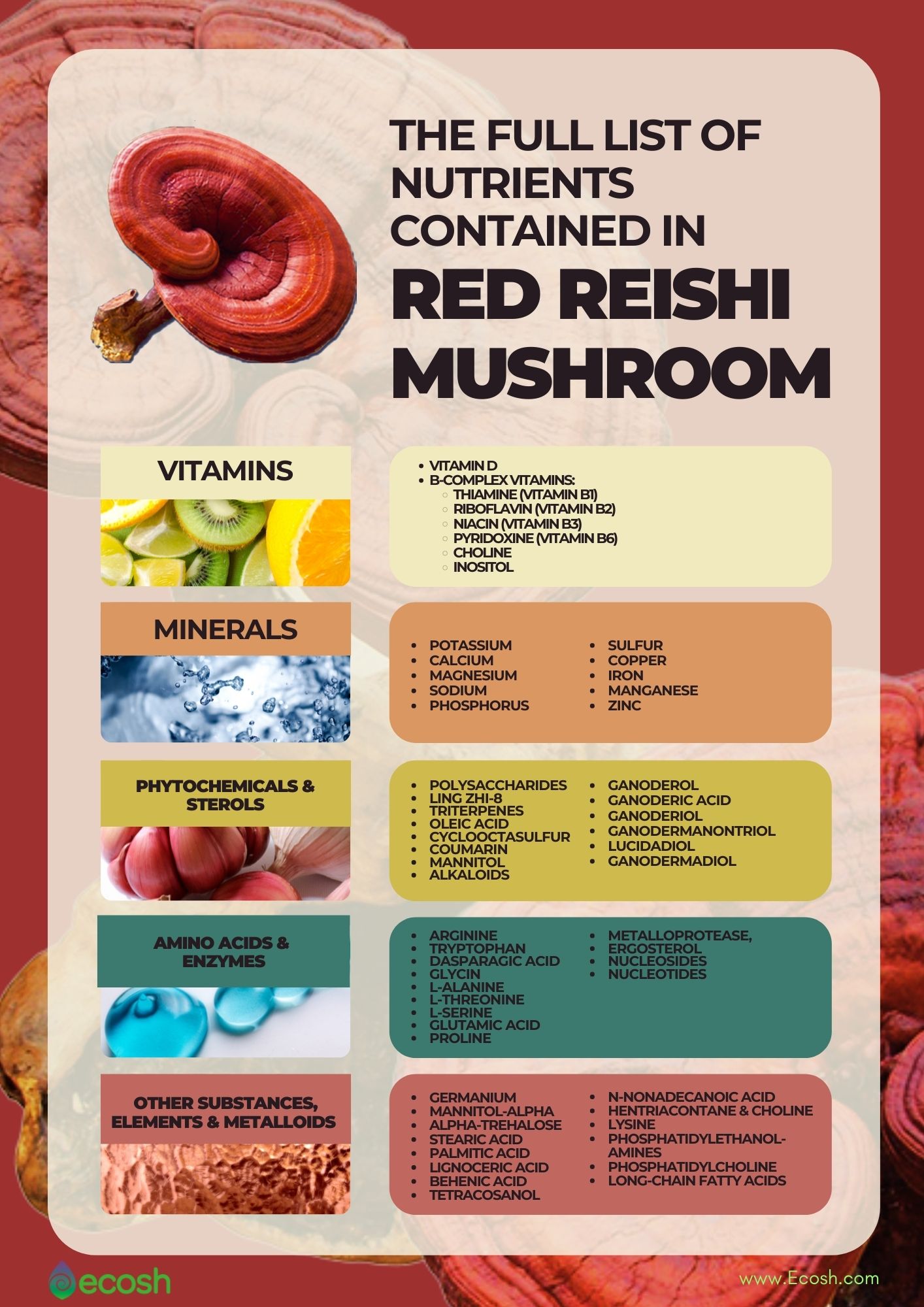
Red Reishi Mushroom Nutritional Information
The fruiting bodies of the Reishi mushroom are a magnificent source of nutritionally important minerals, vitamins (mainly B-complex vitamins and vitamin D), antioxidants, amino acids, macronutrients, as well as protein (despite not being animal-based). Although B-complex vitamins are commonly found in meat, mushrooms, due to being from the fungi rather than plant kingdom, are one of the few sources of quality B vitamins that can be found in vegetarian diets.
Reishi in particular, similarly to the oyster mushroom, is a complete source of the primary B complex vitamins such as thiamine, riboflavin, folic acid and niacin.
Therefore, due to its high protein and B-complex vitamins content, Reishi might be a great meat substitute for vegans looking to increase the amount of B vitamins and proteins in their diet naturally. Among edible mushrooms, Reishi is also an exceptionally superb source of potassium.
Despite the high mineral and vitamin content – the wide spectrum of prophylactic and therapeutic effects of Reishi mushroom is mainly due to the high content of polysaccharides, triterpenoids and germanium. It’s because Reishi contains an enormous collection of bioactive polysaccharides, beta-glucans and more than 120 different triterpenoid compounds.
For example, polysaccharides found in the Reishi mushroom affect your blood by increasing the number of white blood cells, which in turn increases your immune system’s ability to fight diseases.
Although you can eat this mushroom raw, due to its rubbery, cork-like texture, many prefer to consume it in powdered or supplement form.
The List of The Vitamins, Minerals, Amino Acids, and Other Components in Red Reishi Mushroom:
- Protein: 7 – 8% (19.5 mg per 100 grams). Mushroom proteins contain all the essential amino acids and are especially rich in lysine and leucine.
- Carbohydrate: 26–28%
- Crude fiber: 59%
- Crude fat: 3–5%
- Ash: 1.8%
Red Reishi contains vitamins such as:
- Vitamin D. Red Reishi produces considerable amounts of vitamin D once exposed to the sun. Vitamin D is a primary nutrient for instance, for the immune system, in the production of white blood cells, and extremely important in maintaining skin health and keeping fatigue away.
- B-complex vitamins such as:
- Thiamine (Vitamin B1): 3.49 mg/100 g
- Riboflavin (Vitamin B2): 17.10 mg/100 g
- Niacin (Vitamin B3): 61.9 mg/100 g
- Pyridoxine (Vitamin B6): 0.71 mg/100 g
- Choline: 1,150 mg/100 g
- Inositol: 307 mg/100g
Red Reishi contains minerals such as:
- Potassium: 432 mg/100 grams
- Calcium: 1.88 mg/100 grams
- Magnesium: 7.95 mg/100 grams
- Sodium: 2.82 mg/100 grams
- Phosphorus: 225 mg/100 grams
- Sulfur: 129 mg/100 grams
- Copper: 26 mg/100 grams
- Iron: 2.22 mg/100 grams
- Manganese: 22 mg/100 grams
- Zinc: 0.7 mg/100 grams
Red Reishi contains phytochemicals such as:
- Polysaccharides (such as beta glucans and hetero-beta-glucans). For instance, researchers have discovered that water-soluble polysaccharides are the most active elements found in Red Reishi that have blood pressure lowering, antitumour, and immunomodulating effects.
- Ling Zhi-8 protein is an anti-allergenic and immunomodulating protein.
- Triterpenes, called ganoderic acids, are anti-allergenic agents that for instance, also have cholesterol and blood pressure reducing properties. Moreover, Reishi is the only known source of a group of triterpenes known as ganoderic acids, and it has the most active polysaccharides among medicinal plant sources. Triterpene’s molecular structure is similar to that of steroid hormones. For instance, preliminary studies have suggested that ganoderic acids help relieve common allergies by improving liver functions, oxygen utilization and inhibiting histamine release.
- Oleic acid, an inhibitor of histamine release
- Cyclooctasulfur, a strong inhibitor of histamine release
- Coumarin
- Mannitol
- In addition, alkaloids
Sterols isolated from the Red Reishi include substances such as:
- Ganoderol
- Ganoderic acid
- Ganoderiol
- Ganodermanontriol
- Lucidadiol
- Ganodermadiol
Red Reishi contains enzymes such as:
- Metalloprotease, which delays clotting time
- Ergosterol (provitamin D2)
- Nucleosides
- Nucleotides
Red Reishi contains amino acids such as:
- Arginine
- Tryptophan
- Dasparagic acid
- Glycin
- L-Alanine
- L-Threonine
- L-Serine
- Glutamic acid
- Proline
- In addition, small amounts of methionine, leucine, tyrosine, and phenylalanine
Other substances, elements and metalloids in Red Reichi include substances such as:
- Germanium. Germanium is one of the strong antioxidant active ingredients in the treatment of dangerous diseases. For example, the organic germanium content in Reishi is 5-8 times higher than in ginseng.
- Mannitol-alpha
- Alpha-Trehalose
- Stearic acid
- Palmitic acid
- Lignoceric acid
- N-nonadecanoic acid
- Behenic acid
- Tetracosanol
- Hentriacontane and Choline
- Lysine
- Phosphatidylethanol-amines
- Phosphatidylcholine
- In addition, a mixture of several long-chain fatty acids that may contribute to the antitumor activity of the mushroom (1, 3, 4, 5, 6, 7, 8, 9).
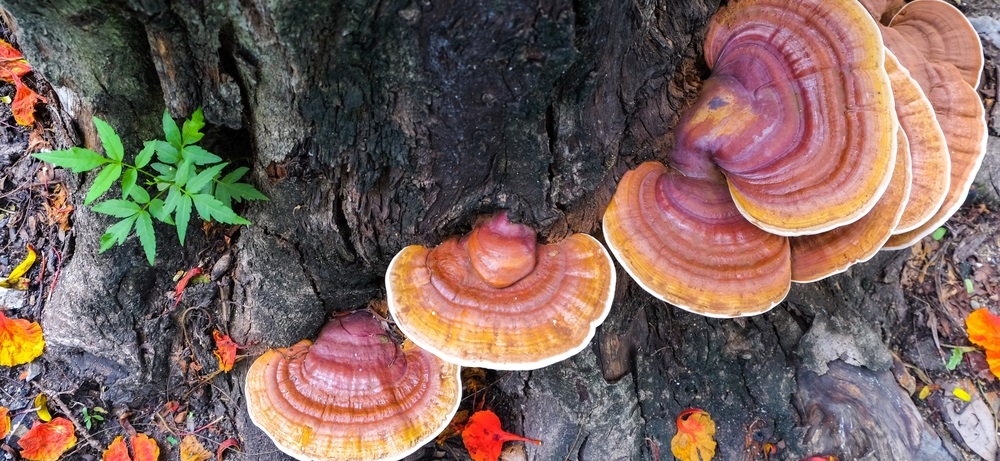
Red Reishi Mushroom Is An Adaptogen
Adaptogens or adaptogenic compounds are terms that are used for herbal remedies like medicinal mushrooms (Chaga, Red Reishi etc.), herbs, or other compounds that can for example:
- Improve your body’s ability to adapt to biological, chemical, and physical stressors, such as for example tobacco, drugs, alcohol, highly processed foods, genetically modified foods, irradiated foods, and pesticides.
- At the same time stimulate normal balance of your body.
- As well as teach your cells how to adapt to the responses produced by the environment.
- Act as an immunomodulator, because adaptogens can either promote or silence your immune system.
Therefore, to be classified as an adaptogen, that certain plant must meet 4 criteria:
- Firstly, the plant is non-toxic, generally safe and causes no negative side effects (with correct dosing).
- Secondly, it helps the body cope with stress.
- Thirdly, both single and prolonged use of the plant has stimulating effects, and broad benefits that improve overall immune system.
- Finally, consuming the herb provides balance within the body and normalizes the body’s functioning.
Red reishi is an excellent adaptogen that improves and balances the normal functioning of all body systems (13, 14, 15, 16).
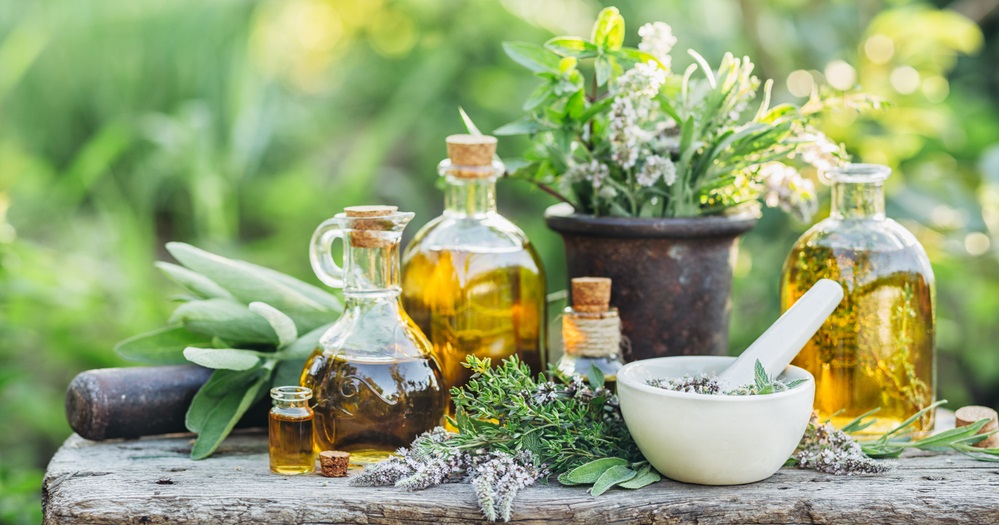
Adaptogens List
Adaptogens have been used and deeply respected by ancient cultures for thousands of years, and there are at least 70 types of herbal plants that are considered as adaptogens. However, all of them have not been thoroughly studied. Some of the most popular adaptogens include for example:
- Amla/Amalika/Indian Gooseberry
- Ashwagandha
- Astragalus
- Bacopa
- Bilberry
- Chaga Mushroom
- Cordyceps
- Dang Shen
- Elderberry
- Eleuthero
- Ginseng
- Guduchi
- He Shou Wu
- Jiaogulan
- Licorice Root
- Lycium/Wolfberry/Goji Berry
- Maca
- Reishi
- Rhodiola/Golden root
- Rhaponticum/Maral root/Russian leuzea
- Shatavari
- Shilajit/Mumijo
- Schisandra berries/Five-flavor fruit
- Suma
- In addition Tulsi/Holy Basil (13, 14, 15, 16).
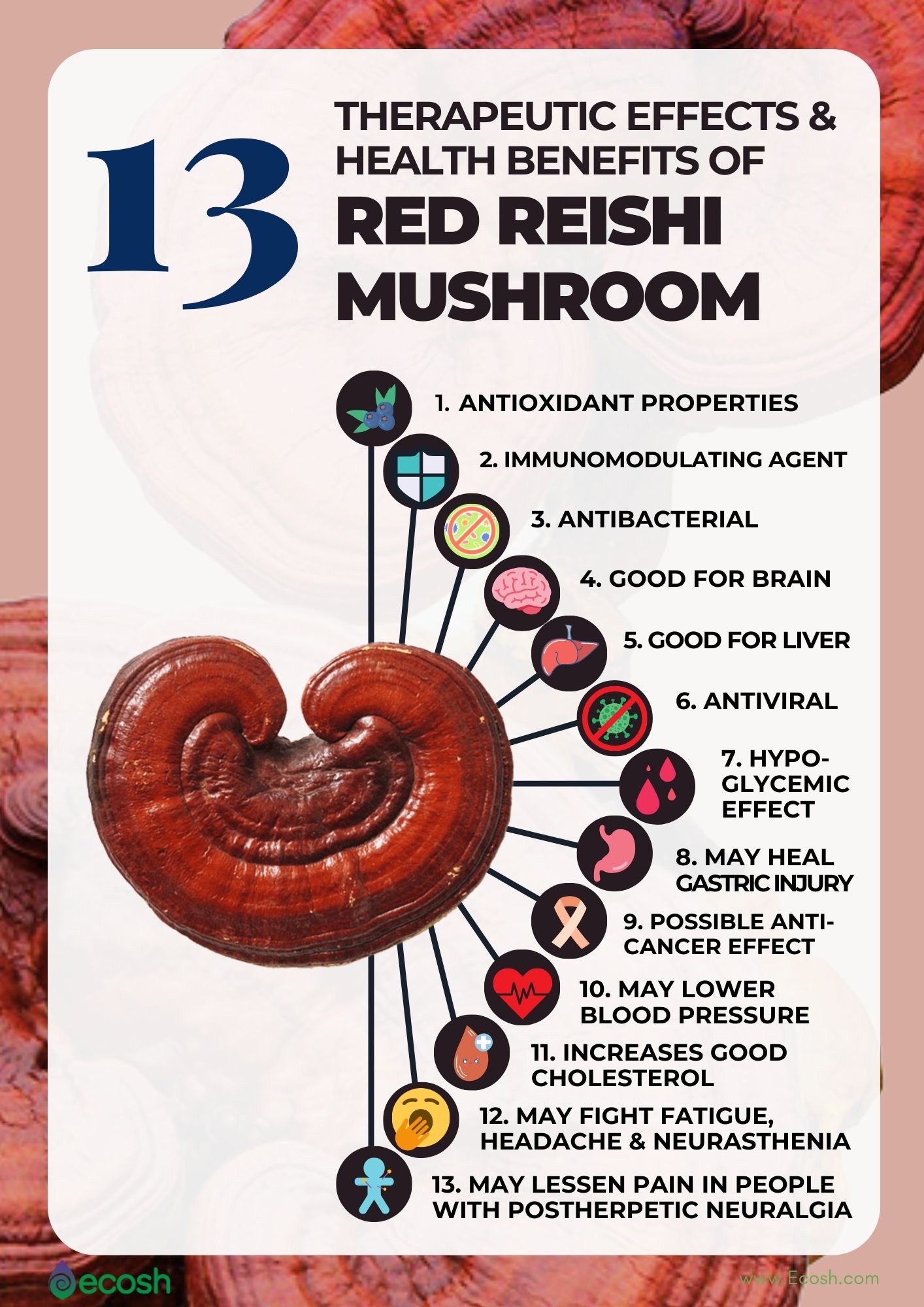
13 Possible Therapeutic Effects and Health Benefits of Red Reishi Mushroom
In nature there are 6 types of Reishi, but Red Reishi (Ganoderma lucidum), is the most studied one and possesses the strongest medicinal effects (12).
Reishi has been used in Chinese medicine for thousands of years, for instance, to calm the mind, relieve cough and asthma, reduce insomnia, dizziness, anxiety, and to to increase the so-called shen (which in Chinese medicine is the connection of heart and mind – the channel of spirituality). Red Reishi is said to sustain life, increase life expectancy, promote health and balance body functions without side effects.
It is used also for Alzheimer disease, cancer, diabetes, and cold sores. In Japan, Reishi dry extract is included in the official list of antitumor drugs. Although research is still ongoing and most evidence is based on animal studies, there is reason to believe that the beneficial effect of Reishi on humans is similar.
1. Red Reishi For Cancer Treatment – Reishi Mushroom May Have an Anti-Cancer Effect
Numerous studies have demonstrated that polysaccharides and triterpenes, the two major groups of components in the mushroom, show chemopreventive and/or tumor cells destroying effects. However, more evidence from well-designed human trials is still needed (7, 10).
2. Red Reishi Has Antioxidant Properties
These polysaccharides and triterpenoids in Reishi, also show antioxidant activity. Moreover, it is found that antioxidants from Reishi absorb quickly after ingestion, which results in an increase in the plasma total antioxidant activity in humans (7).
3. Red Reishi is Immunomodulating Agent
There is considerable evidence to support the immune system stimulating properties of Reishi via induction of cytokines and improvement of immunological effector. For example, in animal studies, different components from Reishi have proved to enhance the proliferation and maturation of:
- T and B lymphocytes (these are the cells that recognize specific “non-self” antigens, and once they have identified an invader, the cells generate specific responses that are tailored maximally to eliminate specific pathogens or pathogen-infected cells).
- Splenic mononuclear cells.
- NK cells (Natural killer (NK) cells that control several types of tumors and microbial infections by limiting their spread and subsequent tissue damage).
- Dendritic cells (DS`s are antigen-presenting cells that capture, process, and present antigens to lymphocytes to initiate and regulate the adaptive immune response) (7, 17).
4. Antiviral Properties of Red Reishi
Although researchers do not fully understand all the mechanism, different extracts and solutions from Reishi have shown inhibitory effects on:
- Herpes simplex virus type 1 (HSV-1)
- Herpes simplex virus type 2 (HSV-2)
- Vesicular stomatitis virus (VSV) New Jersey strain in a tissue culture system
- Human immunodeficiency virus (HIV)-1 protease activity
- The reproduction of hepatitis B virus (HBV)
- Postherpetic (varicella zoster virus) neuralgia (dramatical decrease in pain and promotion the healing of lesions, without any toxicity even at very high doses)
- Herpes genitalis (n = 15)
- Herpes labialis (n = 13) (7).
5. Antibacterial Effects of Red Reishi
Several in vitro and in vivo animal studies have demonstrated that different extracts from Reishi may possess an antibacterial and growth-inhibitory effect on bacteria such as:
- Escherichia coli
- Micrococcus luteus
- Staphylococci
- Streptococci
- Bacillus pneumoniae
- S. aureus
- B. cereus
- Proteus vulgaris
- Salmonella typhi
- Some gram-positive bacteria such as for example Bacillus subtilis (1, 7).
Even more, in one study Reishi was found to be more successful than antibiotics against E. coli, Salmonella typhi, B. cereus, Micrococcus luteus, S. aureus, and Proteus vulgaris, but less effective against some other species researchers have tested.
Nonetheless, Reishi provides a potentially effective treatment, and combination therapy may be more safe and cost effective, as smaller amounts of antibacterial and antiviral medicines could be used with a related decrease in the risk of side effects. However, this needs further investigation (7).
6. Red Reishi Mushroom and Diabetes Mellitus
Animal studies have shown that components of Reishi possess hypoglycemic effects. Though, human studies are still needed (7).
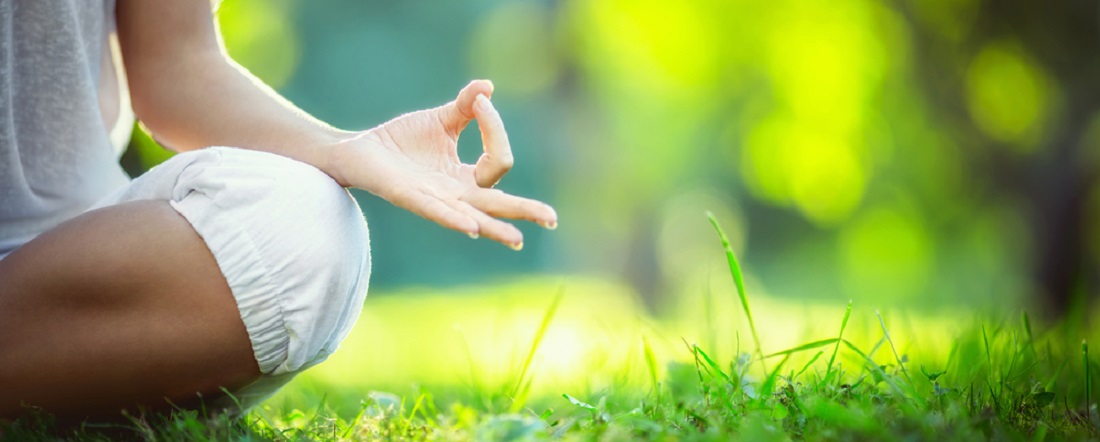
7. Red Reishi For Cognitive Decline and Brain Health
Fungi, particularly contained in Reishi mushrooms, promote nerve growth and stimulate communication between the neurons in the brain. Studies have proven that Reishi mushrooms can help in protecting the brain against seizures, and serve as a regenerative therapeutic agent for the treatment of neurodegenerative diseases associated with cognitive decline (23, 24).
8. Red Reishi Mushroom and Liver Health
Several animal studies have found that extracts of Reishi have a potent hepatoprotective effect on liver injury (7, 10).
9. Red Reishi Mushroom and Gastric Injury
In addition to its effects on chemical-induced liver injury, the benefits of Reishi on gastric injury have also been investigated. Researchers found that Reishi extract significantly accelerated the ulcer healing, and restored mucus and prostaglandin levels in gastric ulcers induced rats compared with the control group (7).
10. Red Reishi May Fight Fatigue, Headache and Neurasthenia
Some preliminary studies have demonstrated that Reishi may lessen fatigue, neurasthenia and depression as well as improve quality of life in people with certain medical conditions. Neurasthenia is a condition described by lassitude, fatigue, headache, irritability, and emotional disturbance (18, 19).
11. Red Reishi May Increase the Levels of HDL Cholesterol (Good Cholesterol)
Although there is little evidence, some studies suggest that Reishi may increase the levels of HDL cholesterol and by doing that, protect your heart and circulatory system. That’s because if HDL cholesterol levels are higher than LDL cholesterol levels – the bad cholesterol will not have the destructive effect on your blood vessels as it usually does (20).
12. Red Reishi May Lower Blood Pressure
Although evidence is weak, and it may interact with other medications, Reishi mushroom may help lower blood pressure, and is listed as an herbal remedy for high blood pressure (hypertension) in Mount Sinai Hospital page (10, 21).
13. Red Reishi For Postherpetic Neuralgia
Postherpetic neuralgia is the most frequent complication of shingles (a painful acute inflammation of the nerve ganglia). Postherpetic neuralgia attacks for example skin and nerve fibers, and causes burning pain that lasts long after the rash and blisters of shingles disappear. However, in one study administration of hot water soluble extracts of Reishi dramatically decreased pain in patients with postherpetic neuralgia (10, 22).
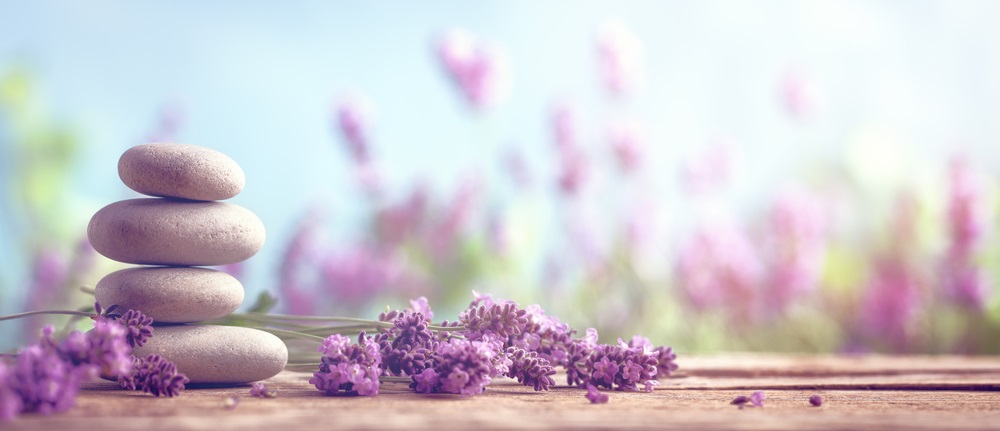
Other Possible Health Benefits of Reishi Mushroom
Although more research is needed, according to some sources Reishi also possess numerous other health benefits such as:
- Analgesic effect
- Anti-inflammatory effect
- Anti-allergic activity
- Bronchitis-preventative activity, inducing regeneration of bronchial epithelium
- Inhibits bone loss
- Strengthens the heart and regulates blood clotting
- Peripheral anticholinergic and central depressant actions on the autonomic nervous system may lessen the impact of caffeine and relax muscles
- Expectorant and antitussive properties
- Improved adrenocortical function and restored hormonal balance
- Improves overall well-being and physical strength
- Calming effect on the central nervous system
- Pain reducing effect
- Promotes liver detoxification and helps to cleanse the body of toxins
- Useful for insomnia
- Has a direct inhibitory effect on tumors, and supports the body during chemotherapy
- Boosts energy
- Calms the mind, nervousness and emotional instability
- Useful during intense learning, improves memory, and brain function
- In addition, antitussive and antispasmodic effect (1, 10, 12).
NB! Reishi mushroom does not directly cure diseases, but strengthens the immune system and your body begins to fight itself. Oriental medicine does not focus as much on disease and the invention of medicines as the Western medicine, but on how to maintain and strengthen health, so the Red Reishi mushroom is the kind of plant that is taken for prevention of diseases – to be healthy and not get sick.
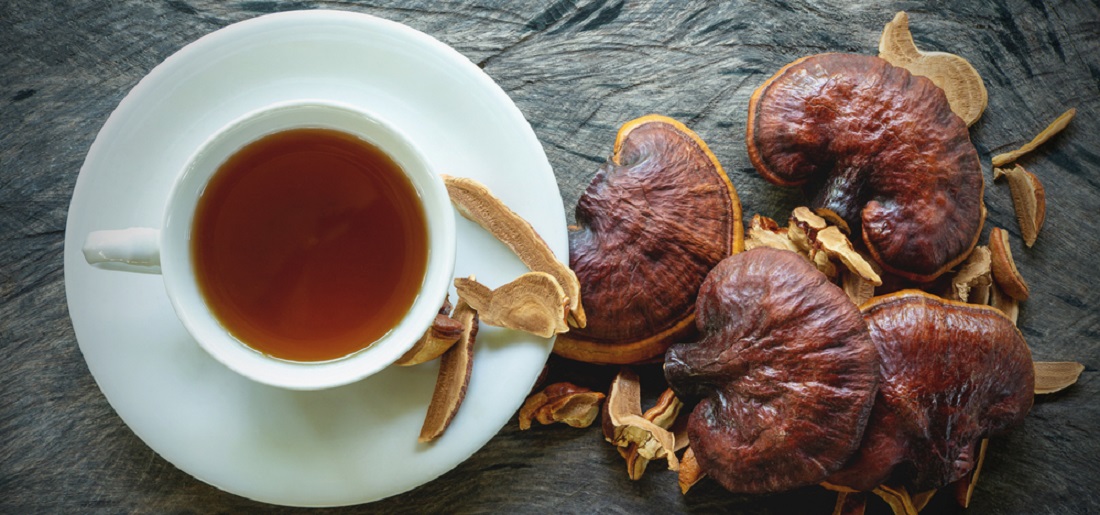
Does Red Reishi Have Side Effects?
According to the literature, the Red Reishi mushroom is classified as a “superior” plant. Superior plants are said to be non-toxic, can be consumed in large quantities, for a long time and have no side effects.
However, in very sensitive individuals, some side effects may occur such as:
- Mild gastrointestinal disturbances
- Itchy skin, mouth, nose and throat
- Dry throat, nose and mouth
- Nosebleed
- Bloody stools
- Rash (from Reishi wine)
- Allergies (from breathing Reishi spores)
- Dizziness
- In addition, bone pain (10).
Luckily, some side effects are usually a positive sign that the mushroom is working. Above all, this is normal considering today’s eating habits and the accumulation of residues and toxins in the body which start to move when consuming Reishi. However, these symptoms usually disappear after continuous use of Reishi mushroom.
Can Red Reishi Mushrooms Interact With Other Medications?
Reishi is a natural dietary supplement that can be taken with medicines, but in some cases, it may interact with some drugs. For instance, some sources claim that Reishi has moderate interactions with at least 73 different medications, and mild interactions with at least 78 different medications. Therefore you should consult with a qualified therapist or doctor before taking Reishi in any form (10).
When consuming Reishi, you should be cautious with these combinations:
- Anticoagulant/Antiplatelet drugs (medicines that slow blood clotting). Large doses of Reishi may slow blood clotting. Therefore consuming Reishi mushrooms together with drugs that also slow blood clotting may raise the chances of bleeding and bruising. Some drugs that slow blood clotting include medications such as:
- Aspirin
- Heparin
- Ibuprofen (Advil, Motrin, and others)
- Diclofenac (Voltaren, Cataflam, and others)
- Clopidogrel (Plavix)
- Naproxen (Anaprox, Naprosyn, and others)
- Dalteparin (Fragmin)
- Enoxaparin (Lovenox)
- Warfarin (Coumadin), and others.
- Antihypertensive drugs (medicines for high blood pressure). Reishi may also lessen blood pressure. Therefore, consuming Reishi mushrooms together with medications for high blood pressure may lead to too low blood pressure. Some drugs for high blood pressure include medications such as:
- Amlodipine (Norvasc)
- Captopril (Capoten)
- Diltiazem (Cardizem)
- Enalapril (Vasotec)
- Losartan (Cozaar)
- Valsartan (Diovan)
- Hydrochlorothiazide (HydroDIURIL)
- In addition, furosemide (Lasix), and numerous others (11).
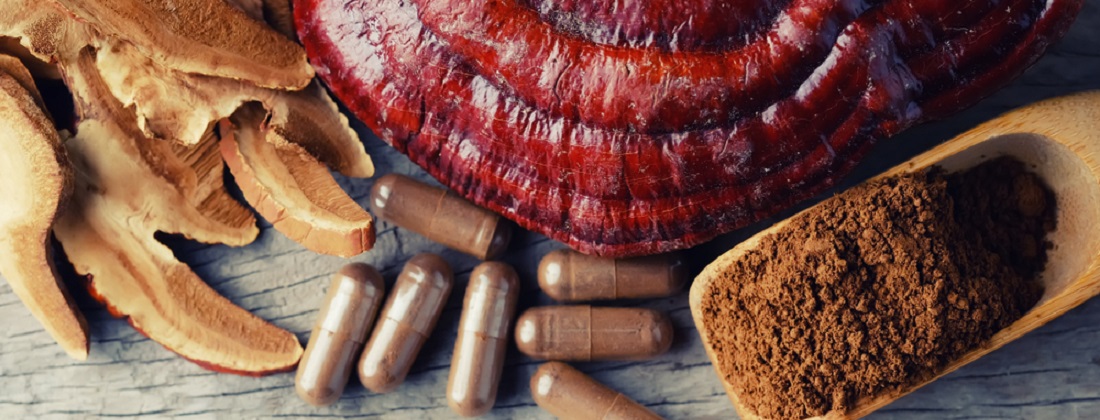
NB! The information provided here is for informational purposes only, so do not consider it as health care or medical diagnosis and treatment. Do not consider this information as a guarantee of the results you want to achieve. In addition, do not take this information as a replacement for the advice of your physician or other healthcare professional.
Even more, you should not use it to diagnose or treat a health problem. Before changing or discontinuing your existing medication, treatment, or care, or taking any dietary supplements, be sure to consult with your healthcare professional or doctor before starting any diet or program, or if you suspect you may have a medical condition.
Written by Maria-Helena Loik
Pictures: Pexels.com, Pixabay.com, Shutterstock.com
Sources:
- What is Reishi? – Guide to Reishi Mushroom
- 3 of the Most Powerful Herbal Medicines You’ve Never Heard of. | ANCIENT BOTANICALS
- Vol4_Issue4_05.pdf (phytopharmajournal.com)
- Lingzhi (mushroom) – Wikipedia
- Notes on Nutritional Properties of Culinary-Medicinal Mushrooms – International Journal of Medicinal Mushrooms, Volume 7, 2005, Issue 1&2 – Begell House Digital Library
- Ganoderma – A therapeutic fungal biofactory – ScienceDirect
- Ganoderma lucidum (Lingzhi or Reishi) – Herbal Medicine – NCBI Bookshelf (nih.gov)
- mb-0223.pdf (medicinabiomolecular.com.br)
- What Are The Effects Of Organic Germanium In Reishi Mushroom? (namduoclinhchi.com)
- Reishi: Generic, Uses, Side Effects, Dosages, Interaction, Warnings (rxlist.com)
- REISHI MUSHROOM: Overview, Uses, Side Effects, Precautions, Interactions, Dosing and Reviews (webmd.com)
- Best adaptogens, medicinal mushrooms and herbs to support your immune system | Biohacker Summit
- All About Adaptogens | Institute of Culinary Education (ice.edu)
- What Are Adaptogens? (webmd.com)
- Your Guide To Adaptogens – Forbes Health
- Adaptogens List: If You’re New To Herbal Medicine, Here’s What We Recommend (sovereignty.co)
- Cellular and molecular mechanisms of immuno-modulation by Ganoderma lucidum – PubMed (nih.gov)
- A randomized, double-blind and placebo-controlled study of a Ganoderma lucidum polysaccharide extract in neurasthenia – PubMed (nih.gov)
- Spore Powder of Ganoderma lucidum Improves Cancer-Related Fatigue in Breast Cancer Patients Undergoing Endocrine Therapy: A Pilot Clinical Trial – PubMed (nih.gov)
- Study of potential cardioprotective effects of Ganoderma lucidum (Lingzhi): results of a controlled human intervention trial – PubMed (nih.gov)
- High blood pressure Information | Mount Sinai – New York
- Effect of Ganoderma lucidum on postherpetic neuralgia – PubMed (nih.gov)
- Polysaccharides from Ganoderma lucidum Promote Cognitive Function and Neural Progenitor Proliferation in Mouse Model of Alzheimer’s Disease (nih.gov)
- Mushrooms Are Good for Brain Health — Andersen Neurodiagnostics, Inc.
- 6 Benefits of Reishi Mushroom (Plus Side Effects and Dosage) (healthline.com)

